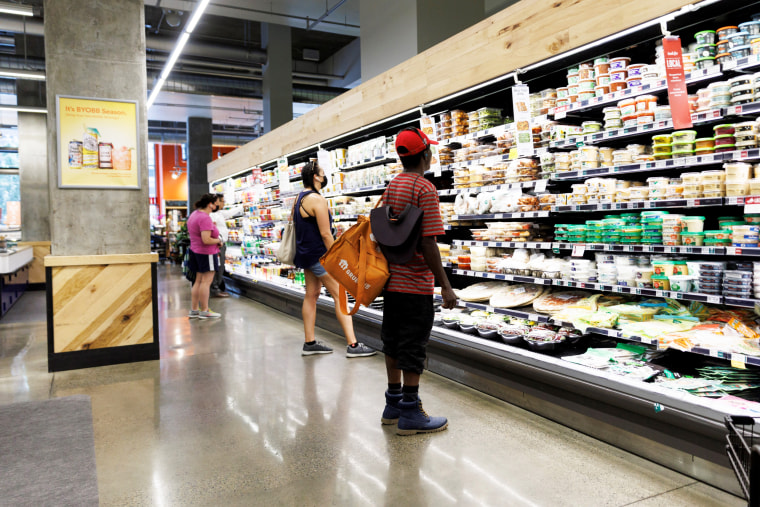A majority of Americans said last month that price increases were causing financial hardship for their households, a Gallup survey released this week found.
That share, 56%, is up from 49% in January and 45% in November 2021. It includes 12% of respondents who described the hardship as "severe" and 44% who called it "moderate."
Gallup defined severe hardship as one that jeopardizes a household's ability to maintain its current standard of living, while moderate hardship was one that affects a household somewhat, but does not endanger its current standard of living.
A confluence of factors, many of them pandemic-related, has led to increased prices for nearly everything, from food to housing and gasoline. Pent-up demand for goods and services, consumers' increased ability to spend their savings, supply chain disruptions and labor shortages have all helped bring about the current inflationary environment.
Significantly more middle-income American households, those making between $48,000 and $89,999 annually, are struggling now compared to last November, Gallup found. That group has seen a 17 percentage-point increase in the share reporting a hardship as a result of price increases, to 63%. Upper-income Americans, too, have seen a double-digit increase in financial hardships: up 12 points to 40%.
Although the increase in the hardship rate among lower-income Americans was smaller, about three-quarters of that group reported hardships.
In a separate survey released last month, the Federal Reserve Bank of New York reported that the lowest annual wage Americans would be willing to take for a new job had hit $72,873. While that is down from a record high of $73,283 in March, it is up dramatically from the $61,700 seen just before the start of the pandemic.
Americans who are experiencing hardships are coping with them in ways one might expect, Gallup said: 24% said they were reducing spending, including buying less generally or buying only the essentials. Another 17% said they were traveling less or driving less, and canceling vacations.
But only 12% said they were trading down to generic goods, and just 10% said they were eating out less. A mere 7% said they were trying to increase their income by working more hours, finding a second job or looking for a new job.
Reports of financial hardship also differed by political party. Sixty-seven percent of respondents who identify as Republicans were more likely to say they are facing economic difficulty compared with 44% of respondents identifying as Democrats, Gallup found.
"These party differences are consistent with Republicans’ being more likely to mention inflation as the most important problem and to rate the economy more negatively than Democrats and independents do, likely because of the presence of a Democratic president in the White House," Gallup reported.

